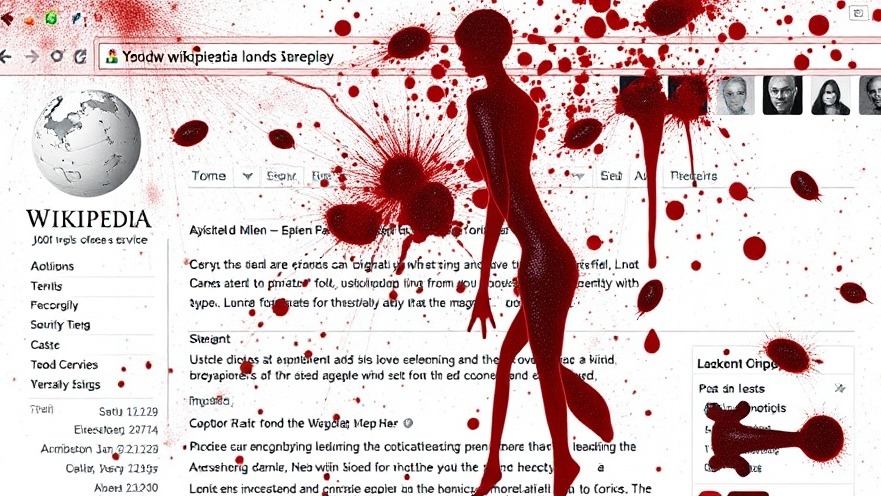
Charlie Kirk Under Fire: A Target of Wikipedia’s Editorial Bias?
In recent weeks, Charlie Kirk, the influential conservative commentator and founder of Turning Point USA, has become the subject of controversy surrounding his Wikipedia page. Critics allege that leftist editors have systematically altered the information presented about him, painting a distorted picture aimed at tarnishing his reputation. This situation raises significant questions about the credibility of user-generated platforms like Wikipedia, especially concerning alleged political biases and the reliability of their contents.
Understanding Wikipedia’s Editorial Process
Wikipedia operates on a community-editing model, allowing users from around the world to create and modify articles. While this approach fosters a diverse knowledge base, it can also lead to significant editorial biases. Kirk’s case exemplifies how content about political figures can be influenced by the editors’ individual perspectives, with many of the sources cited on his page being identified as left-leaning. This calls into question the neutrality of information presented on such a widely used platform.
The Impact of Bias on Public Perception
The implications of biased Wikipedia entries extend far beyond the individual being targeted. As a resource that many people consider authoritative, alterations made by any group can significantly influence public perception. When factual distortions come to light, they can erode trust in not just the Wikipedia platform but also in the broader landscape of news and information dissemination. Moreover, this is not an isolated incident; instances like this illustrate a worrying trend towards politicized representation in media and educational resources.
Exploring the Nature of Media and Information Integrity
Charlie Kirk’s experience opens a broader conversation about the integrity of information across all media platforms. Given the current political climate, wherein narratives often take precedence over facts, the integrity of information is more critical than ever.
The case of Kirk raises questions about the responsibility of media outlets and online platforms to provide balanced coverage. With national news focusing heavily on political debates, it is essential for audiences to approach information critically and seek out diverse perspectives, especially regarding contentious political figures.
The Role of Social Media in Shaping Narratives
In a media landscape dominated by social platforms, the ramifications of biased coverage often reverberate beyond initial reports. When influential figures or platforms like Wikipedia present skewed narratives, social media becomes a powerful tool for dissemination, amplifying these biases exponentially.
For instance, when Kirk’s page was edited to reflect left-leaning narratives, these changes quickly found their way to social media, where they contributed to a larger discourse that could sway opinions and shape public understanding. The interconnectedness of media sources reflects an urgent need for rigorous fact-checking and cross-verification of information, particularly from user-generated sites.
What This Means for You
As consumers of information, it is crucial to be aware of the origins and context of what we read. For national news readers, understanding potential biases and critically analyzing content can help mitigate the impact of these distortions. Knowledge of how information is created and shared empowers individuals to make more informed decisions about what sources they trust.
One practical step is to compare articles from multiple outlets—both left and right-leaning—to gain a fuller understanding of a given issue. Furthermore, utilizing articles from credible national news agencies can provide balanced perspectives, ensuring that decisions aren’t based solely on potentially biased information.
A Call for Critical Engagement with Media
As we navigate a media landscape replete with bias, it's essential to engage critically with the information presented to us. By actively questioning and analyzing what we consume, we can foster a more informed public discourse.
Take action to be an informed citizen and engage with news critically. Your understanding of such dynamics can enhance the quality of the discussions in your social circles.
 Add Element
Add Element  Add Row
Add Row 



Write A Comment